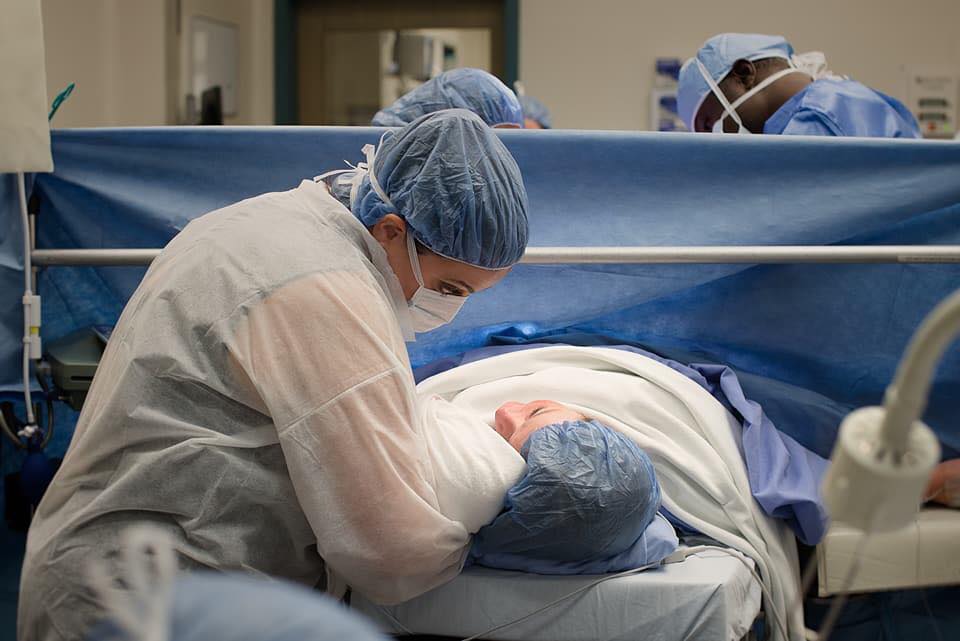- March 4, 2019
Share This

If you’re interested in becoming a surrogate, this ten step guide is a great place to start learning about the process. At Canadian Fertility Consulting, we recommend potential surrogates do plenty of research in order to discover the agency that will best match your expectations. We’ve compiled these ten steps to help you in your quest of finding the right agency for you.
1. Learn more about basic surrogacy requirements:
Canadian Fertility Consulting’s basic surrogate requirements are as follows:
- be a parent yourself who has had an easy pregnancy and birth.
- be between the ages of 21 and 42 years.
- have a healthy BMI with regular menstrual cycles.
- not smoke or use recreational drugs.
- be willing to undergo a background check for yourself and spouse.
It’s also imperative that any potential surrogate is fully committed to the surrogacy process.
2. Know the Difference Between Gestational Surrogacy and Traditional Surrogacy
For the surrogate process, it’s important to know some basic terminology when you apply.
Gestational Surrogacy is an arrangement in which a woman carries a child to term for intended parents who cannot have children on their own. This woman is referred to as a gestational surrogate or gestational carrier. Intended parents create fertilized embryos through in vitro fertilization, sometimes with the assistance of an egg donor or sperm donor. These embryos are cultivated in a laboratory and transferred into the surrogate’s uterus. Women who are gestational surrogates have no genetic relationship to the child they carry.
In Traditional Surrogacy, the surrogate has a biological relationship to the child she carries.
Canadian Fertility Consultants only works with Gestational Surrogacy.
3. Fill out our Application and Connect with the CFC Team!
Book an informational call or fill out an application with us. It takes only a few minutes, and you can do this from the comfort of your home!
We’ll ask questions about your health and birth history, your living situation and support network, and learn more about why you’ll be an awesome surrogate!
We want to answer any questions you may have and discuss your expectations for your surrogacy journey. Our Intake Team are all previous surrogates themselves – they can share their stories with you and answer any questions you may have.
At this point, we’ll initiate your Medical Records Review. We review medical histories on a case-by-case basis since everyone is unique. At the same time, we’ll also carry out a psychological evaluation and background check. This is to ensure safety for both you and the baby you’ll carry.

4. Match with Intended Parents
At Canadian Fertility Consulting, surrogates have the chance to express preferences about the intended parents with whom they’re matched. You can share with us the type of Intended Parents you’re looking for, the level of contact and sharing you prefer, and any overall expectations of what you hope to get out of the journey. There are three main requirements that we use to connect a surrogate and Intended Parents: legal fit, personality, and views on selective reduction. You will have a 2 week window to get to know each other and meet over Facetime, Skype and texting.
5. Medical Screening
Medical screening happens after matching. This is the first of two times you’ll travel as a surrogate. You’ll travel to the Parent’s IVF clinic for your screening. Each clinic is different, so exactly what is done during your screening varies. Typically, you’ll fly in one day, have your appointment the following morning, and then fly home that night. Don’t worry, travel costs are all covered!
6. Legal Agreements and Contracts
As a surrogate, you will be provided with your own legal representation throughout the process, independent of the attorney working with your Intended Parents. You’ll work closely with your attorney to finalize the contract until both you and your Intended Parents are in agreement. It’s important to be in full agreement on all aspects of the contract at this stage, to ensure a smooth and successful journey. Some things you will cover will include lost wages if you’re on on bedrest and termination views.
Once you’ve been medically screened and the contract is signed by both you and your Intended Parents, you’ll receive an IVF treatment schedule to help prepare your body for embryo transfer. The timeline includes the start date of your medications to the actual retrieval and transfer date.

7. Local Monitoring & Embryo Transfer
These appointments are necessary to see how you’re progressing on your medications, and monitor you during the time leading up to your embryo transfer. These appointments are done at a clinic near your home, called a monitoring clinic. Your chosen clinic will monitor you and share your results with the Fertility clinic where your IVF will take place. Because these appointments are close to your home, it limits the need for travel – making life a little easier for you!

8. Pregnancy
When the joy of pregnancy is achieved, you will have continued assistance during your pregnancy from Canadian Fertility Consulting’s Surrogate Support and Financial teams. They ensure that you and your Intended Parents are prepared for the birth. During the pregnancy, most Intended Parents and surrogates check in weekly using Skype or through texting. You both can choose whichever method you are most comfortable with keeping up your relationship.
9. Birth
You’ve given birth before, so you know how this goes. Your Intended Parents will come to the hospital to be there as soon as possible. It’s a really exciting day for everyone! Prior to birth, you and your Intended Parents will have worked with your Surrogate Support Team and the hospital to put a birth plan in order. Due to this prior planning, the hospital is aware that your delivery is a surrogate birth, and that the Intended Parents will be attending. The primary job of the hospital staff is to make you comfortable, and ensure your delivery goes as smoothly as possible.

10. Happily Ever After
Many surrogates have told us that the most wonderful thing about delivering a baby for Intended Parents is that when they’re discharged from the hospital they can focus on recovering, because they don’t have a newborn baby to care for! And that is exactly what you should do: rest, relax and let your body heal. Spend time with your children and family. Depending on the depth of the relationship with your Intended Parents, you will determine the level of contact and communication you maintain. Some surrogates and Intended Parents share photos and updates, while others plan visits and trips together. How your relationship continues to unfold is completely up to you. Just know that you did an amazing, selfless thing that made the biggest difference possible in someone else’s life.
Read the Latest
About Us
Canadian Fertility Consulting is Canada’s premier surrogacy agency. Each year, we guide hundreds of parents create or expand their family through surrogacy and egg donation.



